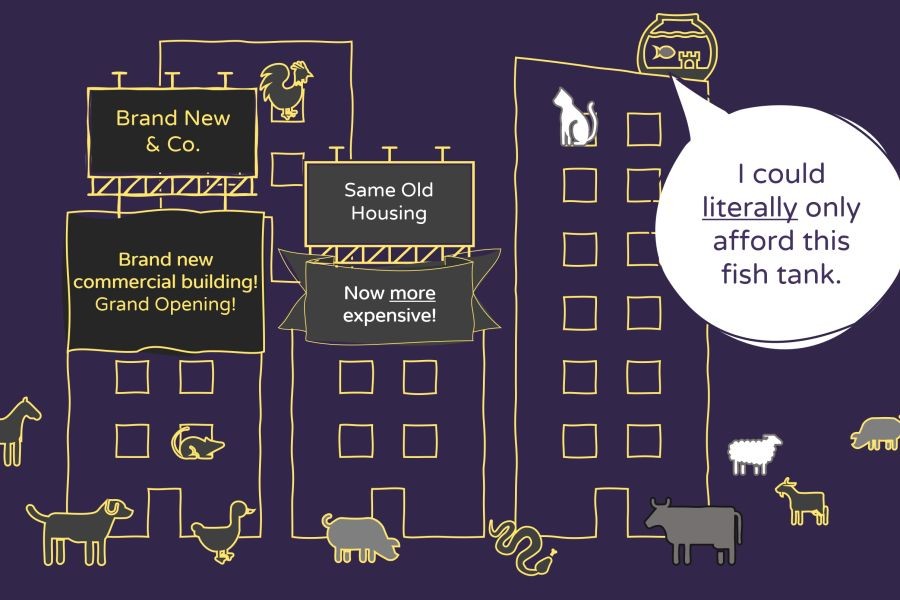Imagine a world where New Zealand leads the charge in the global environmental movement, not just as a participant, but as a pioneering force. In a landscape where ecological consciousness is paramount, New Zealand's unique positioning as a country rich in natural resources and innovative spirit could redefine its role on the world stage. But what does this mean for New Zealand's economy, industries, and policies? Let’s delve into the potential trajectory of New Zealand's influence in the global environmental movement and explore how it can leverage its strengths to drive sustainable change.
Future Forecast & Trends: New Zealand's Environmental Leadership
New Zealand has long been recognized for its pristine landscapes and commitment to conservation. However, the future holds even greater potential as the nation increasingly integrates eco-friendly solutions across various sectors. According to MBIE, New Zealand aims to achieve a net-zero carbon economy by 2050, a goal supported by robust government policies and innovative technologies.
1. renewable energy Revolution
New Zealand is already a leader in renewable energy, with approximately 84% of its electricity generated from renewable sources such as hydroelectric, geothermal, and wind energy. This commitment to clean energy not only reduces carbon emissions but also positions New Zealand as a model for other countries. The global shift towards renewable energy offers a significant opportunity for New Zealand to export expertise and technology, fostering international partnerships and driving economic growth.
2. Sustainable Agriculture Practices
As a country heavily reliant on agriculture, New Zealand is innovating to reduce its environmental footprint. The introduction of precision farming, which uses technology to optimize field-level management, is a promising development. According to Stats NZ, agricultural emissions account for nearly half of the country's greenhouse gas emissions. By adopting sustainable practices, New Zealand can mitigate these emissions, enhancing its agricultural exports' appeal on the global market.
3. Green Technology and Innovation
New Zealand’s tech sector is rapidly evolving, with startups focusing on developing sustainable solutions. Companies like Rocket Lab are pioneering in the aerospace industry by focusing on reusable rockets. This innovation not only contributes to reducing waste but also positions New Zealand as a hub for green technology development. As the global demand for sustainable tech solutions grows, New Zealand's tech industry could see significant expansion.
Myth vs. Reality: Debunking Common Misconceptions
Myth: New Zealand's Small Size Limits Its Impact
Reality: While New Zealand may be small geographically, its impact can be substantial. The nation's commitment to achieving a net-zero carbon economy by 2050 demonstrates its ability to set ambitious goals that inspire global change. Additionally, New Zealand’s innovative approaches to renewable energy and sustainable agriculture serve as scalable models for other countries.
Myth: Environmental Initiatives Hinder Economic Growth
Reality: Contrary to this belief, New Zealand’s sustainable initiatives have shown potential for economic growth. According to the Reserve Bank of New Zealand, investments in green technology can drive job creation and attract international partnerships. The transition to a green economy is seen not as a cost but as an investment in long-term prosperity.
Myth: The Public Isn't Supportive of Environmental Policies
Reality: Public support for environmental policies in New Zealand is strong. A survey conducted by the University of Auckland found that 78% of New Zealanders are willing to make lifestyle changes for environmental benefits. This public backing provides a solid foundation for implementing and scaling eco-friendly initiatives.
Case Studies: Real-World Impact and Lessons
Case Study: Meridian Energy – Pioneering Renewable Solutions
Problem: Meridian Energy, one of New Zealand's largest electricity companies, faced the challenge of reducing its carbon footprint while maintaining reliable energy supply.
Action: Meridian invested in expanding its wind and solar energy projects, becoming a leader in renewable energy generation.
Result: Meridian now produces over 90% of its electricity from renewable sources, setting a benchmark for sustainable energy practices globally.
Takeaway: This case study highlights the potential for energy companies to lead in sustainability while maintaining economic viability. New Zealand businesses can emulate Meridian’s approach to align environmental goals with business growth.
Case Study: Zespri – Sustainable Agriculture for a Global Market
Problem: Zespri, New Zealand's leading kiwifruit exporter, faced challenges with sustainability in agriculture due to its large carbon footprint.
Action: The company implemented sustainable farming practices and invested in research to reduce emissions and improve soil health.
Result: Zespri successfully reduced its carbon emissions by 20% and increased productivity, enhancing its reputation in international markets.
Takeaway: This demonstrates how agricultural businesses can achieve sustainability without compromising on productivity or profitability. Other New Zealand agricultural firms can adopt similar strategies to meet global sustainability standards.
Biggest Mistakes to Avoid in Environmental Strategy
Mistake 1: Ignoring Technological Innovation
Reality: A report by NZTech indicates that businesses failing to adopt new technologies risk falling behind their competitors. Embracing advancements in green technology can enhance efficiency and reduce costs.
Solution: Invest in R&D and partner with tech firms to integrate cutting-edge solutions into your operations.
Mistake 2: Underestimating Public Engagement
Reality: Engaging with the community is crucial for the success of environmental initiatives. A lack of public involvement can lead to resistance and failure.
Solution: Implement participatory approaches and transparent communication strategies to involve the public in decision-making processes.
Mistake 3: Short-Term Focus
Reality: Many businesses focus on immediate gains rather than long-term sustainability. This short-sightedness can hinder growth and adaptability.
Solution: Develop a long-term sustainability plan with clear goals and milestones, ensuring alignment with environmental policies and market trends.
Future Trends & Predictions
Looking ahead, New Zealand is poised to play a pivotal role in the global environmental movement. A report by Deloitte predicts that by 2030, New Zealand could be a leading exporter of renewable energy solutions, significantly boosting its economy. Additionally, the country's continued investment in sustainable agriculture and green technology will likely attract international collaboration and investment.
Furthermore, as global awareness of climate change grows, New Zealand's policies and practices could influence other nations to adopt similar approaches. The country's commitment to achieving a net-zero carbon economy by 2050 sets a precedent for others to follow, showcasing the possibilities of balancing ecological goals with economic development.
Conclusion: The Path Forward for New Zealand
New Zealand stands at a crossroads, with the opportunity to lead the global environmental movement through innovation, policy, and community engagement. By capitalizing on its strengths in renewable energy, sustainable agriculture, and green technology, New Zealand can drive significant change on a global scale.
To remain at the forefront, businesses and policymakers must prioritize long-term sustainability and technological innovation. Embracing these principles will ensure New Zealand's role as a leader in the global environmental movement, fostering a more sustainable future for generations to come.
What’s your take on New Zealand’s potential to lead the global environmental movement? Share your insights below!
People Also Ask (FAQ)
- How does New Zealand's environmental strategy impact its economy? New Zealand's focus on sustainability drives economic growth by attracting international investments and boosting exports of green technology.
- What are the biggest misconceptions about New Zealand's environmental policies? One myth is that these initiatives hinder economic growth, but evidence shows they can drive job creation and prosperity.
- What are the best strategies for implementing sustainable practices? Experts recommend integrating technology, engaging the community, and developing long-term plans for successful implementation.
- What upcoming changes in New Zealand could affect its sustainability efforts? By 2026, policy updates in renewable energy and agriculture could significantly enhance New Zealand's sustainability landscape.
- Who benefits the most from New Zealand's environmental initiatives? These initiatives benefit businesses, communities, and the environment, leading to a healthier economy and society.
Related Search Queries
- New Zealand renewable energy initiatives
- Sustainable agriculture in New Zealand
- Green technology startups in New Zealand
- New Zealand carbon neutral goals
- Environmental policies in New Zealand
- Impact of climate change on New Zealand
- New Zealand's role in global sustainability
- Eco-friendly business practices in NZ
- Future of renewable energy in New Zealand
- Community engagement in NZ environmental efforts


































vnty
20 days ago